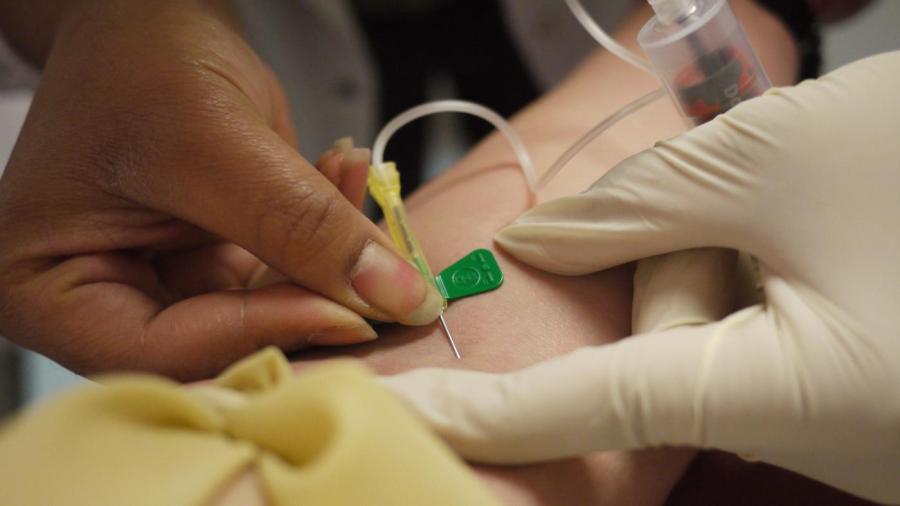What Does High SGPT Mean?

A high serum glutamic pyruvic transaminase (SGPT) test indicates some degree of liver damage. SGPT enters the bloodstream following an injury to the liver.
Serum glutamic pyruvic transaminase, known as SGPT, is an enzyme that the liver creates. It is sometimes called alanine transaminase. or ALT. This enzyme is produced primarily in the liver, but it is also generated in smaller amounts by the kidneys and other organs. Normally, the body has somewhere between seven and 56 units of SGPT per liter of serum. An elevated level of SGPT can mean that there is a problem with the liver or another SGPT-producing organ. Doctors prescribe the ALT test, sometimes in conjunction with other tests, to identify the cause of high SGPT levels in their patients.
Role of the Liver
The liver plays an important role in many daily functions. One of its main tasks is to support healthy metabolism. The liver does this by breaking down fats for the body to use. It also produces bile, which is a thick secretion that helps the body break down and process fats. The liver is also in charge of storing nutrient supplies and releasing them when necessary. The liver removes waste products from the body or turns harmful substances into harmless substances. For example, the liver turns harmful ammonia into urea, which is a benign substance excreted through urine. The liver also aids in blood clotting and helps the body fight off infections and diseases.
Why the SGPT Test Is Performed
Through several means, the liver can be damaged and fail to function properly over time. Doctors often order a liver function test if patients present with one or more symptoms of liver trouble. Symptoms that might indicate poor liver function are nausea, vomiting, stomach pain and swelling, weakness, fatigue, dark stools, light urine and itchy skin. An improperly functioning liver can also cause jaundice, which is a yellowing of the skin around the eyes. In addition to suspecting liver problems, doctors might order a liver function test in certain situations. Patients with recent exposure to the hepatitis virus may be advised to get this test, along with people who have a family history of liver disease. Individuals who consume large amounts of alcohol may also be advised to have an SGPT test. Patients do not usually need to make special preparations for the SGPT test, but they should notify their health care providers of medications that they are taking; some medicines affect test results.
What the Test Results Mean
When doctors see elevated levels of SGPT, they can work to identify the underlying cause. SGPT levels that are higher than normal may be caused by lifestyle factors like excessive alcohol consumption and drug use. Certain infections can also cause high SGPT levels, including mononucleosis. A liver or gallbladder disease can raise SGPT levels, as can gallstones and liver cancer. Some medications can also cause liver damage. A muscle injury might result in elevated SGPT levels. Treatment for elevated SGPT levels depends on the underlying cause. Doctors may recommend making lifestyle changes to improve liver health. They might also order additional tests to get a complete picture of an individual’s health.





